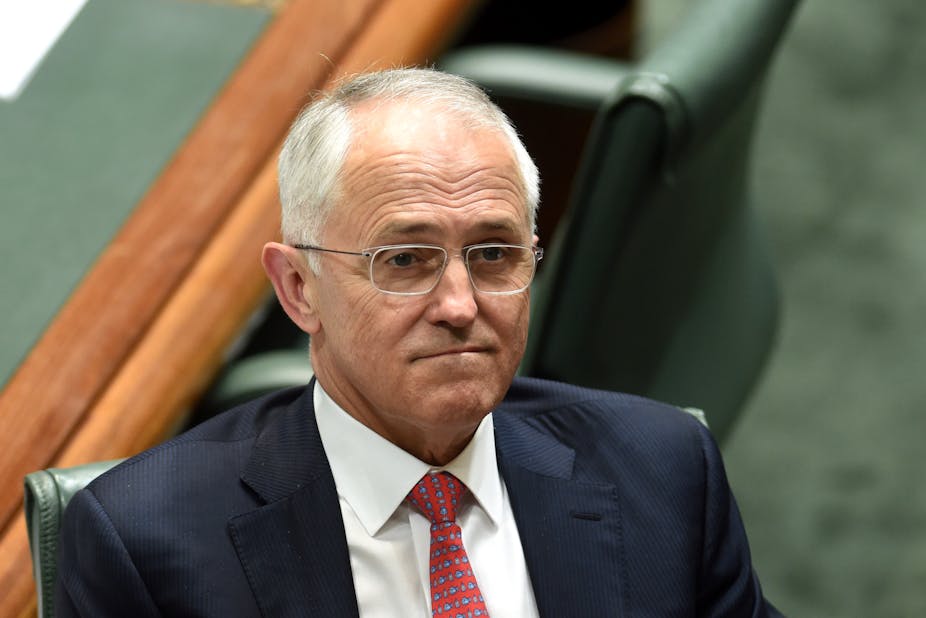Those same-sex couples who want to get married soon have fallen victim to a particularly intense and cynical political power struggle.
The push to accord a simple right to people who – for goodness sake – only seek to break into one of our society’s most traditional institutions has become a cause celebre for conservatives within the Coalition who are determined to keep them out of the club (which a lot of heterosexuals shun these days).
For its part Labor, while advocating their admission, refuses to go down the only path available to deliver it – a refusal strengthened by many in the gay community who are vehemently against a popular vote.
Tuesday’s much-anticipated caucus decision to strike down the February 11 plebiscite is another victory for the Coalition’s conservatives.
Malcolm Turnbull is now trussed up, able to implement neither the plebiscite that he took to the election nor his previously preferred option for a free vote in the parliament.
Bill Shorten sees this as yet another issue with which to skewer Turnbull, while potentially enabling him, leading a Labor government, to be the one to deliver the prize.
Turnbull on Tuesday refused to say what he’ll do after the Senate rejects the plebiscite legislation.
But there seems little doubt. He’ll put up the shutters. Attempts by Labor and Greens to push through private member’s bills will be opposed (just as will the amendment to legislate same-sex marriage that Shorten put forward on Tuesday during the debate on the plebiscite bill).
On everything we know, Turnbull is not going to take some brave, bold stand and say “let’s have a parliamentary vote and I will give my people a free vote”. That would bring mayhem in his ranks and with the Nationals.
Deputy Prime Minister Barnaby Joyce on Tuesday ruled out the free vote route. Without the plebiscite “it becomes an issue for a future government”, he said. Earlier, Victorian National Andrew Broad threatened to go to the crossbench if the government deserted its policy – which brought some firm counselling from his leader.
In a choice between his political skin and gay rights, Turnbull will opt for keeping his skin intact.
When Labor keeps moving for a parliamentary vote, don’t expect Liberal moderates to be crossing the floor. Moderates with spine are an endangered species these days - the conservatives are more gung-ho. Anyway, given the government’s poor situation it would be a big thing for moderates to undermine Turnbull – one of their own, sort of – by doing that.
Turnbull lambasts Labor’s political expediency for holding up same-sex marriage. Shorten say we aren’t getting it because Turnbull is captive of the conservatives. Both blame lines are true.
Barring some unexpected development, the stalemate is likely to continue for the rest of this parliamentary term.
Turnbull will have already lost those in the community for whom this issue is a vote-changer. Whether it will damage him more widely remains to be seen. Most immediately, he won’t have the distraction of a plebiscite campaign, which will be a plus for him.
Liberal backbencher Warren Entsch, who tried unsuccessfully to get a cross-party bill though in the last parliament but was done down by Tony Abbott, admitted on Tuesday that “a plebiscite is certainly not my preferred position”.
But in a speech to parliament he outlined the danger of missing the opportunity it posed.
“Every issue has its time in the sun, when the national conversation is at its peak. But when that moment passes, it can be years before momentum again reaches the point for change. Marriage equality is no different,” he said.
“The issue is white hot right now, and if not resolved on February 11 then I suspect many people will feel they have given it their best shot, and walk away to focus on other issues.”
Outside the house, Entsch said he saw no prospect of the substantive issue coming to a parliamentary vote this term.
Assuming the status quo remains, the government before the election will need to look again at its plebiscite pledge, which was a product of a Liberal impasse in 2015. Crafting a policy for next time will be a challenge for Turnbull. You can be sure his conservative colleagues will soon start thinking ahead to that battle.

